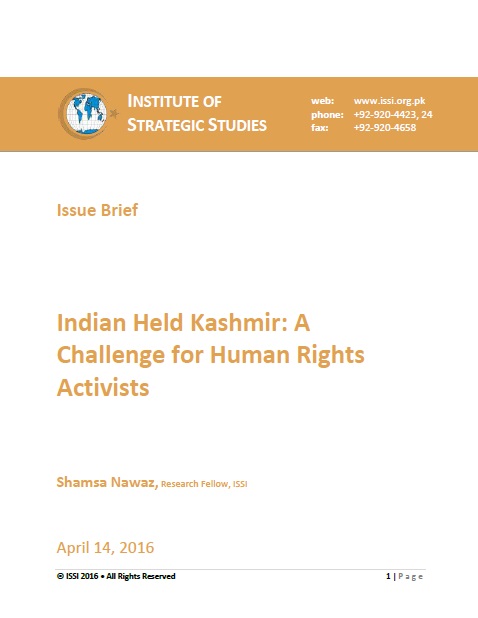The militancy and state terrorism has made the issue of immunity a challenge in the Indian Occupied Kashmir (IOK). It is a state where successive Indian governments have stationed an estimated 700,000 military and paramilitary personnel, with one soldier for every 17 civilians. The human rights record of the Indian security forces has been equally appalling. Unchecked, unpunished and legitimised in an environment of polarised society by decades of conflict, the question of self-determination is hugely embarrassing for the world community. Only a handful of cases have been brought to justice due to ‘hard line’ policy followed by India. The record of human rights violations by the security forces of India has been characterised by arbitrary arrests, torture, rape and extrajudicial killings. Human Rights Organisations such as Human Rights Watch and People’s Union for Civil Liberties (PUCL) have extensively documented these atrocities.
According to Kashmir Media Service, there had been 94,323 total killings in Indian Occupied Kashmir (IOK) from the year 1989 to February 29, 2016, out of which 7,043 were custodial killings. About 133,387 civilians have been arrested and 106,055 structures burned or destroyed. About 22,810 women were widowed and 107,556 children were orphaned. The number of molested or rape cases recorded is 10,175. Nonetheless, New Delhi’s response to the reports by various human rights organisations has been evasive. “Disappearances” and so-called “encounter deaths” are also reported commonly. According to one report, there are thousands of unmarked graves in the state’s northern districts.















